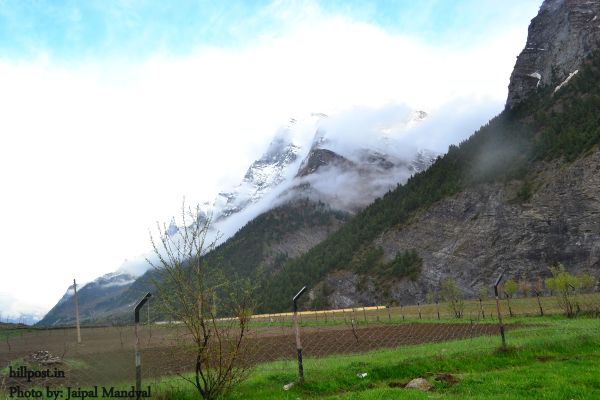Manali: Farmers from the high altitude tribal lands of Lahaul valley fear losing out growing their sole brief summer crops as the curfew lockdown in the state has left about 2,500 of them stranded in different places.
“The government should understand the pain of Lahaul farmers and make arrangements to send them home soon,” says Ravi Thakur, a former legislator from the tribal belt.
To escape the harsh winter months, many Lahaul natives often migrate to warmer and return in spring to sow peas and potatoes, the main cash crops of the region. Apples have also been introduced into the belt and the production is on the rise.
Unable to get back to their native regions, farming operations in many villages are at a standstill. “The farmer of Lahaul is out of the valley, how will the crop be sown,” questions Thakur.
Many farmers from Lahaul are willing to undertake the arduous trek over Rohtang Pass, which is still receiving spells of snow, but the administration has issued strict directives against movement of people from one district to another
“It’s ironic that the agriculture minister is from Lahaul-Spiti and he too does not understand the pain of these farmers,” said Thakur.

Border Roads Organisation of the army is working overtime to clear snow from the Manali-Keylong highway. The army road engineers are hopeful of clearing snow from the 13,050 high Rohtang Pass by end of the month May to open the road to the landlocked valley. The road was closed for vehicular traffic on 15th November.
“We have approached the district of Kullu but haven’t been granted permission due to the Covid-19 outbreak,” says Ram Lal Markanda, agriculture minister who is also holds charge for tribal development.
“Those wanting to return will be medically examined before starting the journey and also be checked upon reaching Keylong. Till Rohtang Pass remains blocked, those wanting to return will have to trek 12 km from Rani Nallah to Rohtang, from where they will be ferried in buses,” Markanda.

Sanjay Dutta, an engineer by qualification but is a journalist by choice.
He has worked for the premier new agency Press Trust of India and leading English daily Indian Express.
With more than a decade of experience, he has been highlighting issues related to environment, tourism and other aspects affecting mountain ecology.
Sanjay Dutta lives in a village close to Manali in Kullu valley of Himachal.



